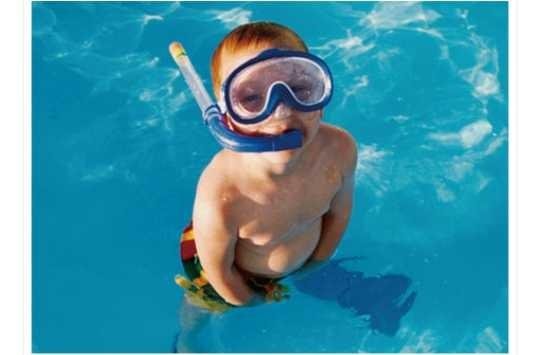
This is a well-known fact: Everyone is peeing in the pool. This is the conclusion that chemists have studied the safety of public swimming pools.
But that's not the best thing. Urine and pool disinfection with chlorine compounds produced by the combination of by-products, and you do not think so friendly. "If only one person is peeing in the pool, it is obviously not a big problem," says Ernest Blatchley, an environmental engineer at Purdue University in the United States. "But there is evidence that in some cases the concentration of the compound is already high enough to harm human health." "

Urine is composed of a large number of different substances that can interact with nitrogen, and the concentrations of nitric oxide and cyanogen produced by them are high enough to be damaging.
Blatchley said the difficulty of the study was to determine how the chemicals in the pool were accumulating. It depends on a number of factors: the number of people using the pool, the degree of mixing of the disinfectant, the water temperature, and how long the pool water has been "changed". Although the amount of nitrogen dioxide can be measured, but its measurement tools are generally not directly used in the pool. While cyanide is more difficult to measure. Blatchley said: "This is an unstable chemical. The formation of fast, fast degradation rate is also very volatile." This means that once it is formed in the pool, it will not stay too long.
Blatchley argues that the two substances are more worrying about cyanide. Chloride is a toxic substance, once reached a certain concentration, it will endanger human health. But because of its formation speed and decomposition speed is too fast, it is difficult to determine the pool of cyanide concentration.
Inhalation of nitric oxide can cause respiratory problems, especially those with asthma and other respiratory diseases. It smells sometimes overshadowed the smell of the pool itself, and will make your eyes burning sensation.
Blatchley said that in most cases, the content of cyanide is not cause poisoning reaction. However, in overcrowded pools, chemicals will continue to accumulate to the unbearable concentration of the human body. According to his and team survey data and other studies show that the average of each swimmer in the pool will leave 50 to 80 ml of urine.
If everyone is peeing, why do not you disinfect the pool more frequently? Blatchley thinks this is not the solution: the more chlorine is added, the more likely it is to react, producing more volatile complexes. If people understand the principles of chemistry, then they should think twice before peeing in the public pool next time.
Blatchley says he often links this phenomenon with sucking secondhand smoke. Not long ago the United States also considered smoking in public places is acceptable. But the public pressure derived from the second-hand side effects has changed the situation.
In fact, even the swimming idol, athletic and leisure swimming symbol of Phelps, also admitted to have been in the pool of urine, and that chlorine can destroy it, "so nothing terrible." Blatchley advises people not to think of the pool as a clean machine, into the pool before the first shower, want to urinate out of the pool to the bathroom.
If we can stop the routine culture of the pool, then we can reduce the use of chlorine, reduce the pressure on organic compounds that react with chlorine, and vice versa also reduce chlorine use while improving water quality and air quality. Blatchley said that in the future, "I would like to see that we take the initiative to solve the problem, rather than passively."
Downvoting a post can decrease pending rewards and make it less visible. Common reasons:
Submit